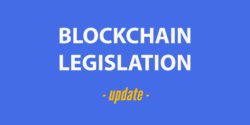 By Trudy-Anne McLeary, Associate, Corporate and Finance | Benjamin T. Brickner, Associate, Corporate and Finance
By Trudy-Anne McLeary, Associate, Corporate and Finance | Benjamin T. Brickner, Associate, Corporate and Finance
In an investigative report and investor bulletin, the SEC concludes that offers and sales of cryptocurrency coins and tokens may be subject to federal securities laws.
On July 25, 2017, the Securities and Exchange Commission (the Commission) released an investigative report with important implications for issuers and sponsors of initial coin offerings (ICOs) that raise funds for cryptocurrency ventures. The report, prompted by the recent proliferation of such activity, concluded that coins offered to purchasers in ICOs constitute securities regulated by the Securities Act of 1933 (Securities Act) and the Securities Exchange Act of 1934 (Exchange Act). As a result, absent an exemption, such offerings must be registered with the Commission, similar to other public offerings.
The press release accompanying the report notably quotes the new Commission chairman and the new heads of the Corporation Finance and Enforcement divisions. This combined statement gives the report unusual weight and makes clear to Commission Staff that its contents describe senior officials’ current thinking on cryptocurrency regulation.
Background
In early 2015, The DAO, an unincorporated association, organized an IPO-style offering in which investors were offered DAO Tokens in exchange for Ether, a cryptocurrency similar to Bitcoin. The proceeds of the offering were intended to finance projects approved by a vote of DAO Token holders. Projects were to consist of investments in “smart contracts,” multiparty agreements encoded on a blockchain (a transaction ledger stored on a diffuse computing network). This arrangement enables transactions contemplated by such contracts to be self-executing by facilitating their verification and enforcement.
The offering presented investors with the opportunity to share in the earnings from these projects and, importantly, was marketed as such. In June 2016, however, hackers gained control over one-third of the Ether raised through the offering, then valued at about $50 million. Only by fundamentally altering the computing platform on which Ether is based was The DAO able to regain control of most of the stolen assets. Following this attack, the Commission launched an investigation into the applicability of the federal securities laws to DAO Tokens and similar offerings.
Securities Regulation of DAO Tokens and Implications for ICOs
In its investigation, the Commission sought to determine whether DAO Tokens and similar instruments constitute securities for purposes of the Securities Act and the Exchange Act. A security is broadly defined to include investment contracts.1 The Commission found that DAO Tokens met all three prongs of the 70-year-old Howey test for identifying investment contracts and, therefore, constituted a security. Specifically, the Commission’s analysis concluded that The DAO’s investors (1) invested money (2) with a reasonable expectation of gaining profits (3) that were derived from the efforts of The DAO.
The investment-of-money prong was met by investors’ exchange of the digital currency Ether. The expectation-of-profits prong was satisfied by how the offer was marketed. Statements made by promoters and on The DAO website marketed the offering as an investment. The Commission discussed at greater length whether the offering depended on the efforts of others. Here the Commission framed the “central issue” as whether the efforts made by those other than the investors were “undeniably significant” and “essential managerial efforts which affect the failure or success of the enterprise.” The Commission noted that the creators of The DAO “held themselves out to investors as experts in Ethereum,” the blockchain protocol on which The DAO operates. Moreover, they informed investors that they had selected key personnel to manage the enterprise “based on their expertise and credentials.”
The Commission provided extensive additional analysis of this prong of the Howey test, examining marketing factors specific to The DAO, suggesting that other platforms could be structured to avoid the inference that the profits were derived from the efforts of others, thereby avoiding the conclusion that securities were involved. For example, the Commission noted that DAO Token holders’ voting rights “did not provide them with meaningful control over the enterprise.” The Commission observed that the ability to vote for contracts was “largely perfunctory” and that token holders were “widely dispersed and limited in their ability to communicate with each other.”
The Commission proceeded to describe and examine these features at length. This emphasis is notable and suggests that technological innovation could provide token holders with voting rights and communication abilities sufficient to reach a different conclusion under the Howey test’s third prong. Implementing such a platform could be very difficult, especially where holders are numerous, because effective voting control may not be practical. However, the Commission’s detailed discussion on these points, and the issues it identified in The DAO’s offering, raise intriguing questions about how a different approach might ultimately be successful.
The report also noted that The DAO offering would not fall under the JOBS Act’s crowdfunding exemption because The DAO did not meet certain threshold criteria, such as being registered with the Commission and the Financial Industry Regulatory Authority as a broker-dealer or a funding portal. The DAO also raised more than the $1 million annual cap applicable to exempt issuers under Regulation CF.
The Commission’s report does not assert that all coins and tokens necessarily constitute securities, nor that all ICOs are “offerings,” but does emphasize the broad application of securities laws “regardless [of] whether the issuing entity is a traditional company or a decentralized autonomous organization” and “regardless [of] whether those securities are purchased using U.S. dollars or virtual currencies.” The Commission’s simultaneous issuance of an investor bulletin on ICOs explains that “depending on the facts and circumstances of each individual ICO, the virtual coins or tokens that are offered or sold may be securities,” such that their offer and sale would be subject to securities regulation.
Until now ICOs have been organized on the theory that the coins and tokens being issued are currency and therefore exempt from securities regulation. The Commission rejected this argument, likely because purchasers of coins and tokens do so with intent to invest and for value appreciation, not to hold legal tender currency. Likely due to the novelty of the transactions involved and apparent good faith intentions of the participants, the Commission decided not to pursue an enforcement action against The DAO. Future ICO sponsors are unlikely to receive a similar free pass.
Important Takeaways
- Although the Commission’s report is directly applicable only to DAO Tokens, it effectively puts other ICO issuers on notice that all cryptocurrency coin and token offerings are potentially subject to securities regulation. In particular, coins or tokens that meet the Howey test as applied in the Commission’s analysis are particularly likely to be regulated, as the offering of such tokens likely constitutes an investment contract and therefore will be subject to securities regulation. In addition, ICO platforms should be aware of the circumstances under which they might constitute an exchange, requiring registration as a broker-dealer, national securities exchange or alternative trading system in the absence of an exemption.
- The Commission’s report raises the question of whether alternative approaches, with robust managerial control in the hands of holders, could be developed to avoid the third prong of the Howey test. Although significant caution is in order, the Commission’s analysis may offer hope to market participants who innovate in ways that carefully address the concerns articulated in the report. As the Commission itself noted, “[w]hether or not a particular transaction involves the offer and sale of a security—regardless of the terminology used—will depend on the facts and circumstances, including the economic realities of the transaction.” Nonetheless, we believe the Commission and Staff will be highly skeptical of conclusions that the federal securities laws do not apply to coin and token offerings.
- The Commission’s report does not consider whether The DAO’s activities render it an “investment company” for purposes of the Investment Company Act of 1940, which generally requires investment companies to register with the Commission. Given the broad definition of “securities” under this act, and the Commission’s conclusion that cryptocurrency coins and tokens may constitute securities, ICO issuers should carefully consider the applicability of this act to their offerings, and the obligations this would entail.
- The Commission’s message is clear: ICO issuers and brokers must tread carefully and fully consider the regulatory implications of offerings prior to launch. If the coins or tokens being offered are securities, registration with the Commission will be required, unless an exemption is available, such as in private placements and foreign offerings to accredited and overseas investors, respectively.
Final Thoughts
The Commission’s detailed legal and factual analysis of the DAO Token offering suggests the Commission is closely monitoring cryptocurrency and ICO activities. The Commission observes that “virtual organizations and associated individuals and entities increasingly are using distributed ledger technology to offer and sell instruments such as DAO Tokens to raise capital.”
We expect the Commission will continue to examine the applicability of securities law to each iteration of ICO as this form of fund-raising evolves. Issuers considering an ICO should consult securities law and digital finance experts, including competent legal counsel, before undertaking such activities.
Related Links
Securities and Exchange Commission, “Report of Investigation Pursuant to Section 21(a) of the Securities Exchange Act of 1934: The DAO” (July 25, 2017), available at https://www.sec.gov/litigation/investreport/34-81207.pdf
Securities and Exchange Commission, Press Release, SEC Issues Investigative Report Concluding DAO Tokens, a Digital Asset, Were Securities (July 25, 2017), available at https://www.sec.gov/news/press-release/2017-131
Securities and Exchange Commission, “Investor Bulletin: Initial Coin Offerings” (July 25, 2017), available athttps://www.investor.gov/additional-resources/news-alerts/alerts-bulletins/investor-bulletin-initial-coin-offerings
This post was originally published on this site



